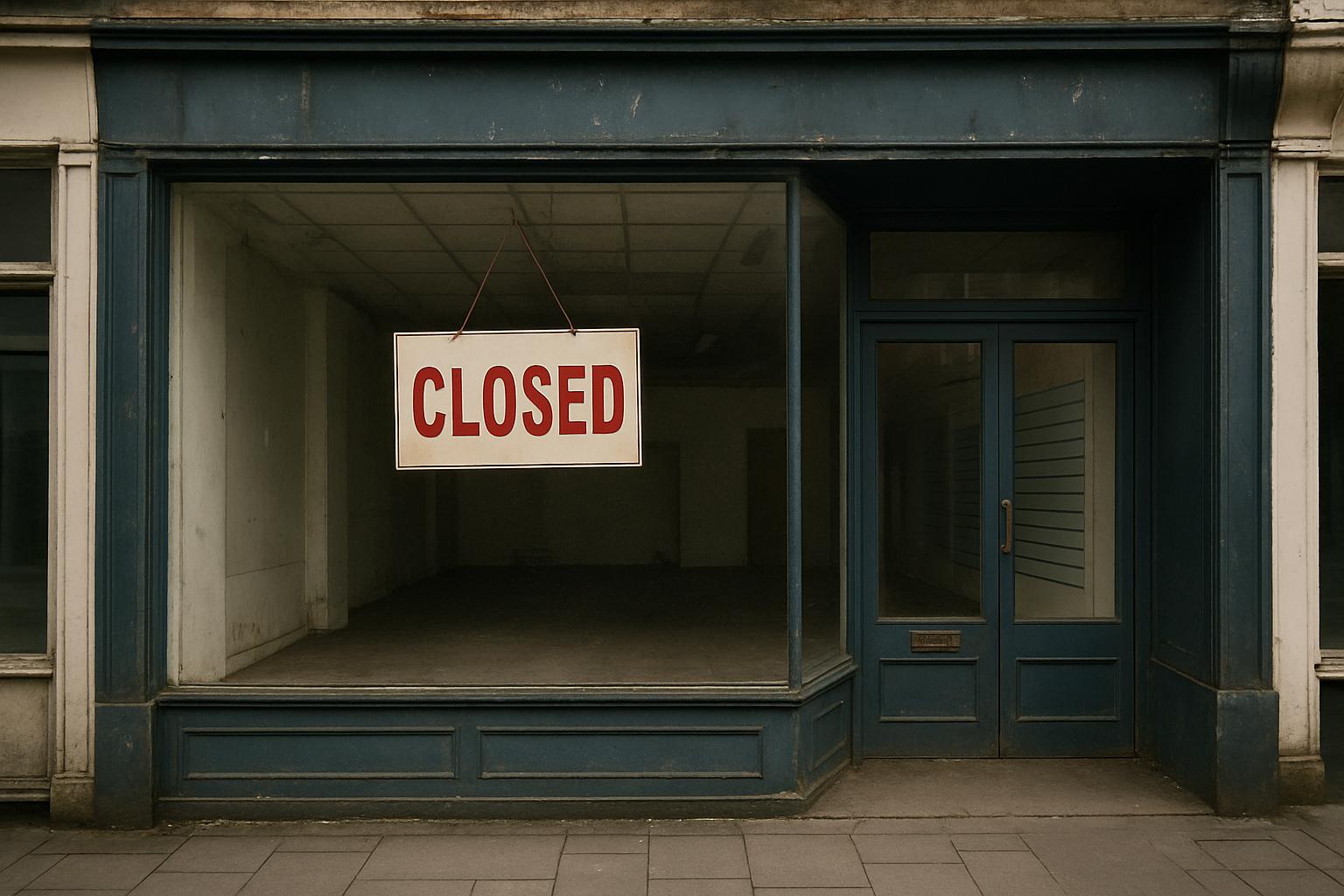Britain's high streets are facing another wave of store closures, affecting a number of well-known retail names and leaving many shoppers grappling with disappearing favourites. Industry giants such as Poundland, New Look, Claire’s, and even pub chain Wetherspoons are all set to shut multiple outlets across the UK in the coming weeks, citing structural challenges, economic pressures, and in some cases, administration.
Poundland, the discount retailer famous for its budget-friendly items, is reducing its footprint significantly under a restructuring plan approved earlier this year. Originally operating approximately 800 stores, the chain plans to close around 68 locations, aiming to bring its total number of outlets down to between 650 and 700. This move follows its recent acquisition by Gordon Brothers for £1, whose £80 million investment aims to rejuvenate the business. As part of its strategy, Poundland will also discontinue frozen and chilled food sales and close distribution centres in Darton and Bilston. The closures, which have already seen a number of stores shut in recent months, including a Sidcup store slated to close on November 14, are intended to stabilise the business and safeguard its long-term viability, though over 1,000 jobs are reported to be at risk. Ahead of these closures, affected stores have been offering discounts of up to 40%, inviting customers to capitalise on the deals before the final shuttering of locations.
Fashion retailer New Look is also grappling with the current retail climate, announcing plans to close a further 11 stores before the end of the year. One confirmed closure is its store in Lewes, Sussex, which will shut on November 8. The company attributes its reduction in physical outlets partly to economic pressures such as rising National Insurance costs, with around 100 stores expected to close in total. Nonetheless, New Look encourages customers to continue shopping online, emphasising the full product range available via its website.
Accessories retailer Claire’s, which fell into administration in September, is expected to close 145 stores nationwide. While detailed closure dates remain unclear, many stores are likely to close towards the end of November and through December. In the meantime, Claire’s is conducting clearance sales with discounts up to 30%, providing some final opportunities for customers before the chain’s contraction.
On a more localised front, beloved stores such as Ann’s Cottage in Falmouth, Cornwall, are also shutting their doors, with the surf shop closing on November 9 after many years of community presence. The owners expressed heartfelt thanks to customers and staff, marking the end of an era for the store which began in 1978. Similarly, Quality Discount’s Norwich outlet will close due to redevelopment issues in the area and reduced accessibility. This closure is particularly poignant, as Norwich was the site of Quality Discount’s first store, which had grown into a network of over 50 shops across the UK.
The pub sector is not immune to these closures, as demonstrated by Wetherspoons’ recent decisions. The chain will be closing a number of pubs across the country, including The Water Gate in Barnstaple, Devon, closing on November 9, and the Baxter’s Court in Hackney, London, which shut a week earlier. Other pubs put up for sale in June, such as The Babington Arms in Derby and The Kentish Drovers in Peckham, will continue trading until sold. The closures have provoked disappointment among patrons, especially where the loss is keenly felt, such as in Hackney. Despite these closures, Wetherspoons has simultaneously pursued expansion, signing a franchise deal with The Papas Group that will see 15 new pubs opening, including one in Lincoln, highlighting a strategy of consolidation alongside selective growth.
The spate of closures across retail and hospitality sectors reflects the broader strain felt by many businesses due to rising operational costs, changing consumer behaviours, and ongoing economic uncertainties. Though these changes are undoubtedly difficult for communities and employees alike, the affected companies argue that they are necessary steps to ensure future sustainability in a challenging market.
📌 Reference Map:
- Paragraph 1 – [1] (Express)
- Paragraph 2 – [1] (Express), [2] (Reuters), [3] (Standard), [4] (Standard), [6] (Standard)
- Paragraph 3 – [1] (Express)
- Paragraph 4 – [1] (Express)
- Paragraph 5 – [1] (Express)
- Paragraph 6 – [1] (Express)
- Paragraph 7 – [1] (Express)
- Paragraph 8 – [1] (Express)
Source: Noah Wire Services
